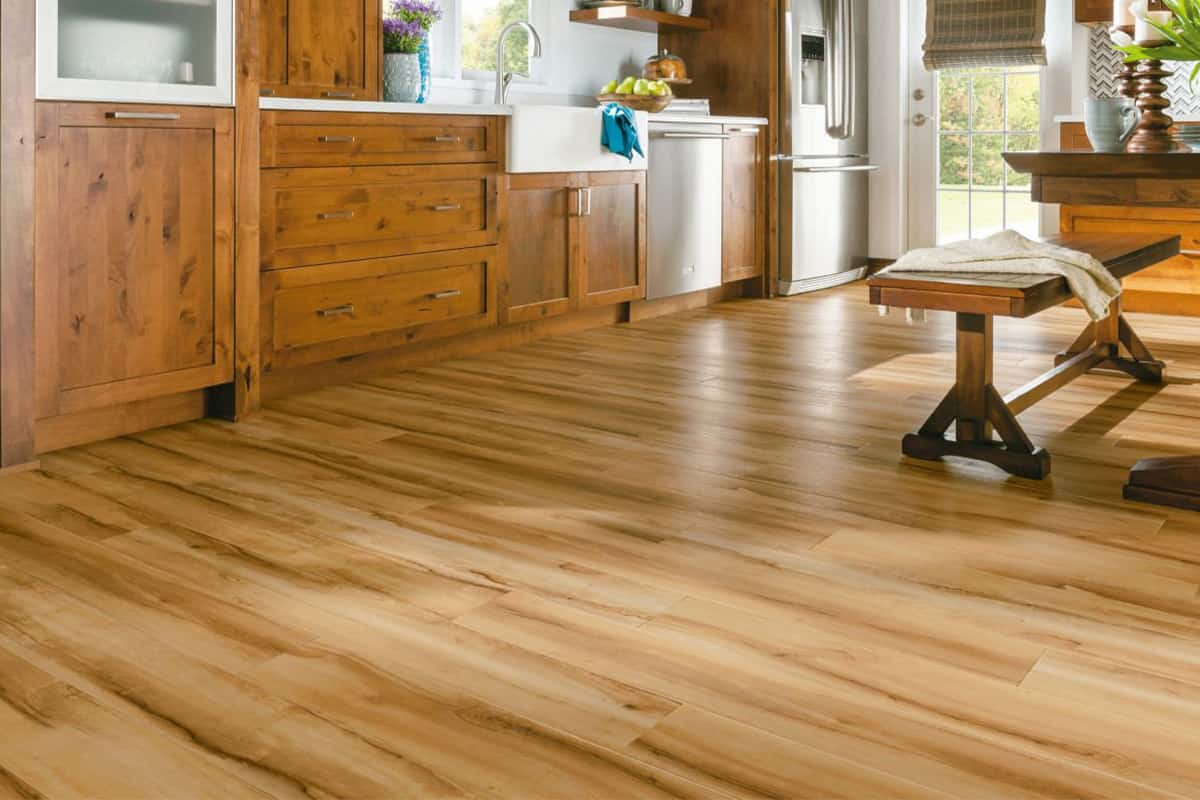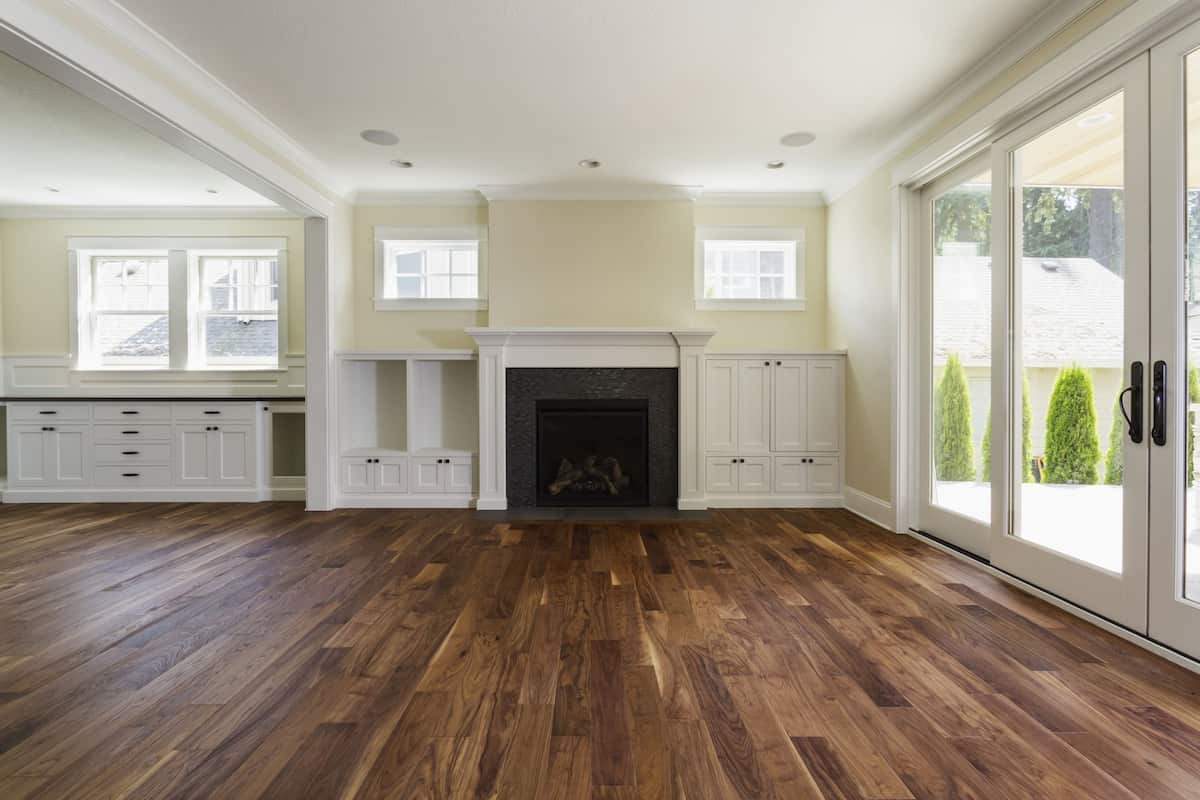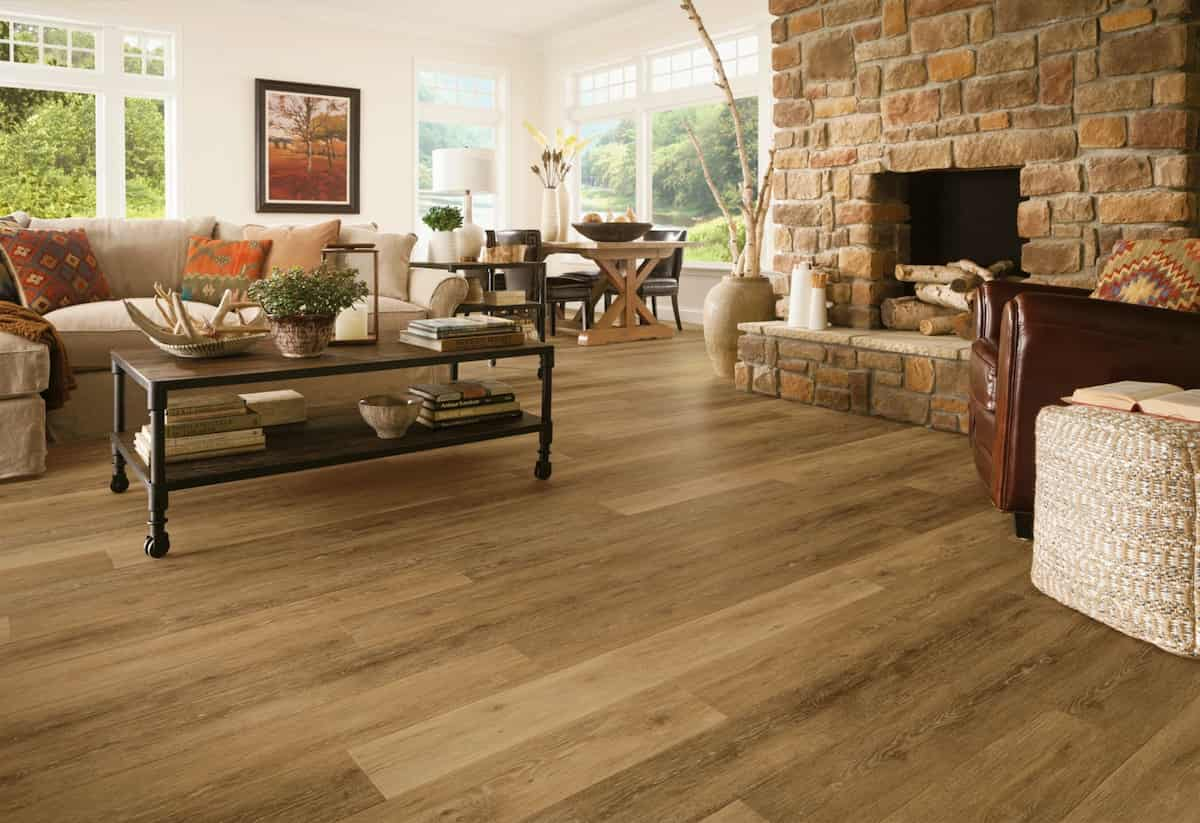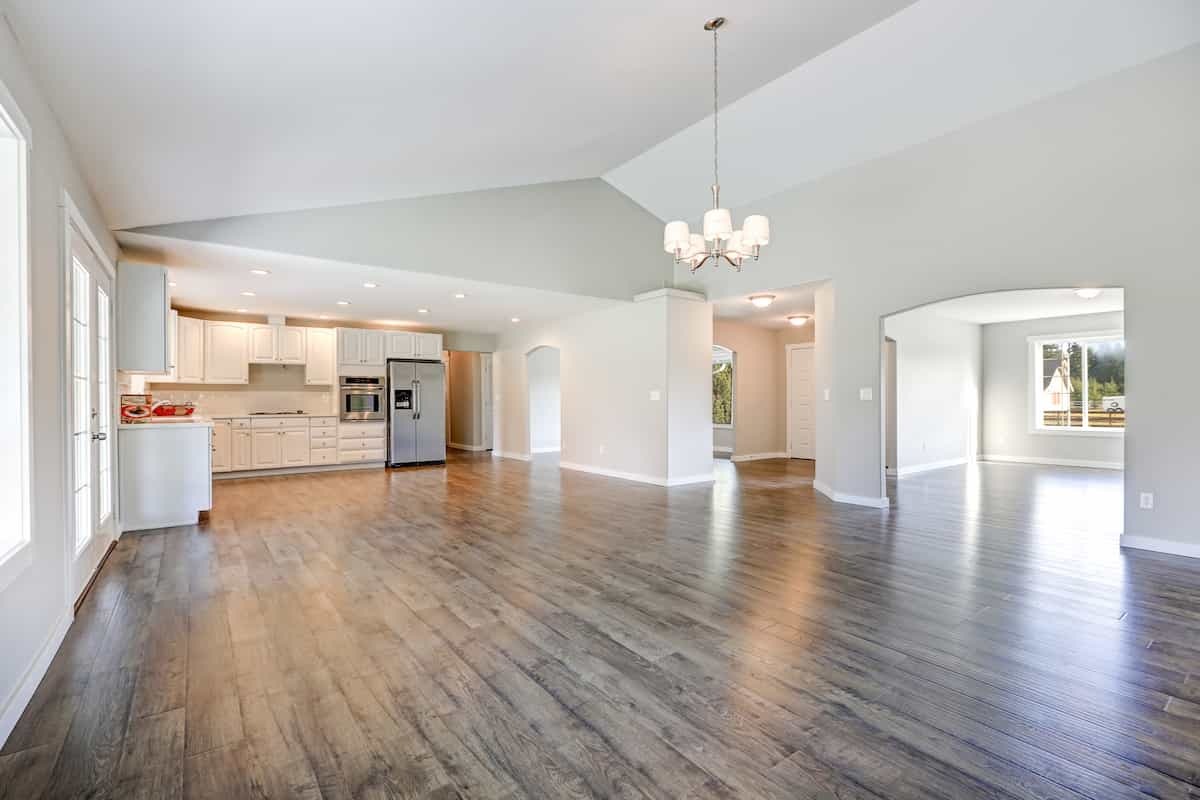Luxury vinyl planks and hardwoods are essentially different, despite having a somewhat similar appearance. The vinyl planks are created using raw materials, whereas hardwood is a natural product. Each has advantages and disadvantages of its own. So, which type of flooring should you pick while making the final decision? Hardwood floors or luxury vinyl planks? In this post, we'll carefully examine these two flooring choices in an effort to put a stop to this age-old argument. Let's start! Hardwood flooring: What Is It? Hardwood flooring is simply wood that has been cut into planks and manufactured from it. Hardwood flooring was formerly only used for structural purposes, i.e., to sustain a building's support beams. However, today's hardwood planks are available in a variety of aesthetically beautiful patterns and hues. You have the option of solid hardwood flooring or engineered hardwood flooring when it comes to flooring. While engineered hardwood comprises numerous layers of wooden plies covered with a veneer made of a particular species of wood, solid hardwood planks are just timbers that have been cut into planks.

When installed, solid and engineered hardwood look almost identical and share a similar warmth and texture. Furthermore, despite the fact that both kinds of hardwoods are similarly resilient, engineered hardwood flooring has a higher level of stability due to the additional strength obtained by cross-layering the plies. What Are Luxury Vinyl Planks? Artificial hardwood floor replicas come in the form of luxury vinyl planks. Each vinyl sheet is created and colored, and pattern printed in a way that nearly resembles real wood flooring. So it makes sense that vinyl planks and hardwood planks are difficult to tell apart at a glance. These synthetic floorings were initially launched in the 1930s and are constructed from a blend of polyvinyl chloride resins (PVC), calcium carbonate, plasticizers, white pigments, fungicides, and UV stabilizers. Since then, when it comes to flooring, they have been competing head-to-head with hardwoods. LVP flooring, which contains multi-ply planks and is, therefore, thicker and more rigid than ordinary vinyl flooring, is the more advanced alternative for vinyl flooring. Hardwood vs. Luxury Vinyl Plank Flooring We've already talked about how resemblant premium vinyl planks are to hardwood floors. But what distinguishes it from the genuine thing, and how? Or, what benefits do artificial floorings have over natural ones? Let's delve in to learn more!

- Resilience
One of the top worries of homeowners considering replacing their flooring is durability, particularly if they have children or pets. The good news is that outstanding durability can be found in both LVP and hardwood floors. Since LVPs must pass stringent tests in order to be approved for use on commercial surfaces, hardwoods are naturally hard. Before choosing what flooring is best for your home, you should be aware of a few subtle variances. Printed LVPs are a great option for pet owners because they are quite chip and scratch-resistant, thanks to an undetectable layer of protective top coating. However, shifting your furniture around or dropping some large objects has been known to break and dent LVPs. Similar to printed LVPs, solid LVPs can develop scratches over time. On the other hand, while being very stable, hardwoods are vulnerable to chipping and scratches. But if you've got your heart set on hardwood floors, we'd say go for it because you can always choose to fix or refinish your hardwood floors to make it appear as though you recently put them in. On the negative side, if you're attempting to be as frugal as possible, such maintenance may be costly for you.
- Resistance to Moisture
Moisture resistance is the one area where LVPs outperform hardwoods. LVPs are totally impervious to moisture.

Hardwoods, on the other hand, are not moisture resistant, making them a poor choice for rooms in the house that are subject to dampness. You must dry mop the floor as quickly as possible if water is spilled on the hardwood planks or if they come into touch with moisture. In order to avoid mold growth or other water-related damage, you may need to consult professionals about flooring restoration if the exposure was too great and the moisture damage was severe. LVPs are the ideal flooring option for areas that are prone to wetness for this reason. However, engineered hardwood boards have a limited ability to withstand dampness. But in all honesty, nothing matches the effectiveness of vinyl planks. LVPs are the way to go if you don't want to worry about spills or moisture ruining your flooring continually.
- Cost
In most cases, the price of the natural product is higher than that of its artificial counterpart. When it comes to flooring, the same applies. LVP and hardwood floors are both wise long-term investments, although hardwood floors are more pricey. Additionally, selecting hardwood flooring may add additional installation costs to your flooring budget. Additionally, keep in mind that hardwood floors can be rather demanding and may require special maintenance or refinishing every few years to retain their beauty.

- Installation
LVPs might be an excellent alternative for you if you plan to DIY your flooring installation. With the right equipment, vinyl planks may be installed extremely quickly. However, in order to install them yourself, you just need a simple, leveled area. You don't have to remove any tiles if there are any present underneath. For an additional layer of insulation, you can decide to insert padding beneath your vinyl flooring. Your flooring feels incredibly comfy after the cushioning has been installed. In other words, you don't need a professional's assistance to set up LVPs. Installing hardwoods, however, is a very different ballgame. It involves a lot of details, time, and work. However, this endeavor isn't insurmountable either if you have the right research and equipment. To cut the planks into the correct sizes, one needs a saw. They need also be aware of the expansion and contraction the planks go through depending on the temperature of the room. Before adding hardwoods, you should also make sure that a subfloor and vapor barrier are installed underneath. The entire flooring could be rendered worthless if done incorrectly, forcing you to start over. Therefore, if you ask us, we'd suggest hiring an expert to install your hardwood floors.
- Maintenance and Cleaning
LVP flooring is quite simple to maintain and clean. You can broom it, wet mop it, or use a vacuum on it. Since utilizing such cleaners over time may cause wax buildups on your flooring, your vinyl flooring must be cleaned with no-wax products. You can use vinyl polishes to keep your vinyl flooring looking shiny.

Vinyl flooring, however, may fade over time if it is exposed to direct sunlight. Therefore, if at all possible, you must use blinds or shades to stop your LVP flooring from degrading. Thus LVP flooring that has faded or been damaged cannot be fixed and must be replaced. Hardwood floor maintenance might be overwhelming. Even cleaning is difficult. The main thing to remember is that wet mopping hardwood flooring is strictly prohibited. Your hardwood floors can be cleaned using a vacuum, a dust mop, or all three. If your hardwood flooring starts to lose its sheen, you may need to wax it to ensure that it doesn't fade further. You do have the option of repairing or refinishing your hardwood floors if you find chips or scratches. Without question, LVP flooring is significantly simpler to maintain and keep clean. Having said that, it is important to keep in mind that hardwood floors, if properly maintained, can survive for many generations. Hardwood flooring, therefore, appears to be a superior investment in the long run.
- Application
While both LVP and hardwood are suitable for residential and commercial flooring, LVP is most commonly used in areas of a building that are frequently exposed to moisture, such as bathrooms and kitchens Conversely, hardwoods can be employed in opulent spaces needing more expensive finishes because of their inherent warmth and beauty.
